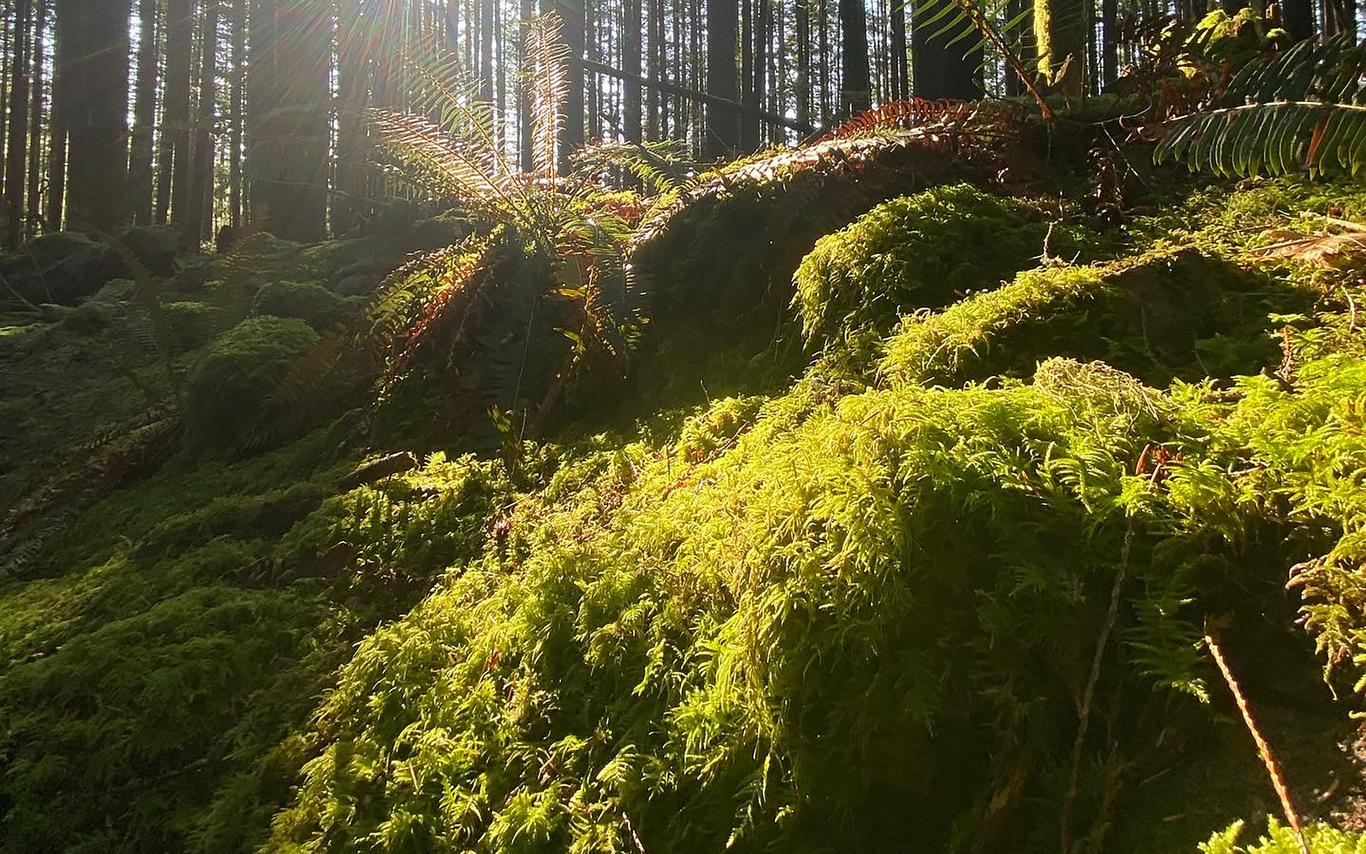by Justine A. Chambers
Where do you begin telling someone their world is not the only one?
— Lee Maracle, Ravensong[1].
The Otherwise, as the elaboration of the alternative, presumes that radically different relations have and do already exist.
— Ashon Crawley, Against the Normative World[2]
Our senses are not hierarchical. We are bodies that feel our experience with all of our senses at once. Social, political, cultural organizing structures place one sense above another, often prioritizing “seeing is believing.” Taryn Walker unsettles occular-centricity without rejecting the work of the eye, and invites us back in to the simultaneity of sensing as a non-hierarchical act of reciprocity, care and joy. In a lateral organization of our fleshly practices, we have all that we need. It is all around us. Feeling is believing.
If matter vibrates as a fact of existence, then all matter exists in an open-ended antiphonal relation of desire. All matter exists in such a way as to require being detected by something otherwise than itself to close the loop.
— Ashon Crawley, Against the Normative World[3]
“The world also listens to the sounds we make,”[4] Walker offers. Instead of listening as an action of capturing something fixed or to find “certainty of information,”[5] it can attend to “affect alongside normative listening habits and biases to imagine (or audiate) otherwise”[6]. The invitation for us, the witnessing listener, is to de-centre ourselves, know that we are part of this listening, locate ourselves within the vibratory force and close the loop.
Walker’s field recordings are an opportunity to consider how we listen. Embedded in sound is time - tempo, tone, measure, pulse, flow, pattern, accent, and meter. These words sit in company with sound and divergently occupy time. Say the words aloud and attend to the sensation in your body. How else could we come to know time?
We are still in landscape and must think of where we are as landscape. There’s an idealization of non-urbanized landscape or “natural” world - we are always in the natural world and we should be engaging in it as such. We shouldn’t have to go to untouched national parks to think about where we are in space and time.
— Taryn Walker
Our present is perpetually caught up with our pasts and futures. Walker’s ink drawings in their articulation of both Indigenous geometry and Eurocentric iconography are a chart for moving through and with time. The bodies in their drawings emerge from their imaginings of the world before, now and always. They have multiple articulations of motion to indicate numerous moments of time at once. It’s a nod to the fourth dimension, and an indication that visionary fiction is a force moving through their work.
“Visionary fiction is a term that distinguishes a science fiction that builds new and freer worlds from mainstream science fiction that reinforces dominant narratives of power.”[7] Knowing they are a future ancestor, Walker insists on mindfully implicating themselves in the future. “Once we build emotional connection to our environments, plants, and people who are not a part of our world yet, we start in the present acting with more intention and care-fulness and gratitude. Sustainable mindset, caretaking mindset and placing our minds and bodies in that state of thinking how are we in relation and in conversation with the future.”[8]
This conversation with the future is, in part, located in the materials they use. Walker’s dipping of her drawings in beeswax is a preservation process. It calls upon the past through the olfactory system and holds the singularity of the moment of its making through its drips, bubbles, and layers. Each drawing’s beeswax encasement holds the possibility of the work lasting longer than this lifetime. Longevity is embedded in the work, and “creates a new archive of cultural objects for my family.”[9] Walker is writing themselves into the future.
I want forms of love in which lives quickly fold into each other – sometimes lopsidedly – but nonetheless gestating a something that could help us endure, together - Billy Ray Belcourt[10]
This writing springs from five months of conversation, knowing side glances, and small courageous acts of solidarity. It is kinship; another embodiment of visionary fiction. “People entering into such a relation must be committed to figuring out what the mode of existence will be, how they will behave, what rules to establish by which to abide.”[11].
Below the underbelly of our time together is perpetual world building, grief, provisional healing tools and the unrelenting commitment to endure. Above these immense weights is a pursuit of pleasure in the fleshly practices of art making, a lean toward tenderness and preparing for a future we don’t know.
[1]Maracle, Lee. Ravensong: A Novel. Toronto: Women's Press, 2017.
[2] Samatar, Sofia, and Sofia Samatar. “Against the Normative World.” The New Inquiry, April 18, 2017. https://thenewinquiry.com/against-the-normative-world/.
[3] Samatar, Sofia, and Sofia Samatar. “Against the Normative World.” The New Inquiry, April 18, 2017. https://thenewinquiry.com/against-the-normative-world/.
[4] Taryn Walker in conversation with the author, December 28, 2022
[5] Robinson, Dylan. “Introduction.” Essay. In Hungry Listening: Resonant Theory for Indigenous Sound Studies, 38–38. Minneapolis: University of Minnesota Press, 2020.
[6] Robinson, Dylan. “Introduction.” Essay. In Hungry Listening: Resonant Theory for Indigenous Sound Studies, 38–38. Minneapolis: University of Minnesota Press, 2020
[7] Imarisha, Walidah, Adrienne Maree Brown, and Sheree Renee Thomas. “Introduction.” Essay. In Octavia's Brood: Science Fiction Stories from Social Justice Movements, 10–10. Oakland, CA: AK Press, 2015.
[8] Tary Walker in conversation with the author, December 28, 2022
[9] Taryn Walker in conversation with the author, January 20, 2023
[10] Belcourt, Billy-Ray. “On 'Moving Too Fast,' or Decolonial Speed.” BILLY-RAY BELCOURT, July 11, 2016. https://nakinisowin.wordpress.com/2015/08/20/on-moving-too-fast-or-deco….
[11] Samatar, Sofia, and Sofia Samatar. “Against the Normative World.” The New Inquiry, April 18, 2017. https://thenewinquiry.com/against-the-normative-world/.
